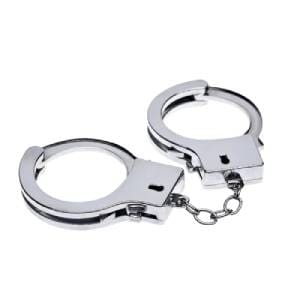If you find yourself facing criminal charges in Ontario, it’s crucial to understand the legal process that follows. Navigating the criminal justice system can be overwhelming, especially if you are unfamiliar with the procedures that begin with an arrest.
This article outlines the key stages and what you can expect at each step, helping you prepare for the journey ahead.
The Arrest: Your Immediate Rights and First Steps
 The initial phase of any criminal process begins with the arrest.
The initial phase of any criminal process begins with the arrest.
When you are arrested in Ontario, the police must inform you of your charges and your right to legal counsel without delay. Here’s what typically happens:
- Notification of Charges: You will be explicitly told what criminal offence you are being charged with.
- Right to Counsel: The police must inform you of your right to speak to a lawyer. You have the option to consult with your lawyer privately before any interrogation or further processing occurs.
The police officer upon arrest is obligated to release the accused on a promise to appear in court unless the police officer beleives,
- the identity of the accused is in question
- the officer needs to ensure the accused will appear at court
- there is a need to collect further evidence or to complete an investigation
- there is a need to ensure the offence will not be repeated
Where the officer has these concerns the officer may continue the arrest and transport the accused to the police station for processing.
The Police Station: Booking
At the police station the accused is brought before the officer in charge.
The police officer in charge, is a senior police officer, who reviews the allegation and ensures that the accused understands why they have been arrest.
A search is done of the accused person for weapons and/or contraband. The accused may be placed in a holding jail cell, interview room or taken to a processing area within the police station. The severity of the situation and demeanour of the accused is usually a factor in whereabout the accused maybe seated.
At the police station, the police will process the accused includes recording their information, taking fingerprints and a photograph.
Release: Promise to Appear
Where the police officer knows the identity of the accused, evidence has been gathered, the incident has stopped and the accused agrees to appear in court, the police officer may release the accused on a Promise to Appear in court.
Promise to Appear: a Promise to Appear is a document issued by the police officer to an individual who has been accused of a crime, typically for less serious offences. This document requires the accused to attend court at a specified date and time. Where fingerprints and photographs are not taken, the promise to appear may also require the accused appear at a specified time and place to provide the police with the accused’s photograph and fingerprints.
Where the accused fails to comply under the conditions on the promise to appear, they maybe re-arrested and held in custody until their appearance before a judge can be arranged.
Release: Before the Officer in Charge
Where the accused is brought to the police station and the police agree to release the accused they will be released before the officer in charge with or without conditions.
The conditions as will as requiring fingerprints and photographs, may include conditions such as curfews, surrendering of weapons e.g. firearms, and conditions such as not to contact or associate with co-accused or witnesses.
Bail Hearings
In Ontario criminal law, a bail hearing is a court proceeding where a judge or justice of the peace decides whether an individual charged with a crime should be released from custody while awaiting trial.
The primary purpose of this hearing is to assess whether the accused presents a risk to the public or might fail to attend future court dates if released. This hearing must typically occur within 24 hours of the arrest, or as soon as possible.
During the bail hearing, the court evaluates several factors:
- Severity of the Alleged Offence: The nature of the crime and its implications.
- Circumstances Surrounding the Case: Specific details and context of the incident.
- Accused’s Criminal History: Any previous criminal records or court order breaches.
- Community Ties: Employment status, family connections, and residence stability.
- Strength of the Prosecution’s Case: The likelihood of conviction based on the evidence.
If the court decides to grant bail, it may impose conditions to mitigate any risk posed by releasing the accused. These conditions could include regular check-ins with the police, living at a designated address, adhering to a curfew, and avoiding contact with weapons, drugs, alcohol, the victim, or witnesses.
In some cases, the court may require a surety—a person who agrees to supervise the accused and ensure compliance with all bail conditions, under the penalty of paying a bond if the accused fails to comply.
However, bail can be denied if there is a significant risk that the accused will not appear in court, is likely to re-offend, or poses a danger to the public. If bail is denied, the accused remains in custody until the trial or a subsequent bail review. This decision balances the rights of the individual against the safety and integrity of the public and the justice system. Where an accused is facing a bail hearing they would be well advised to speak to a bail hearing lawyer ensure the best possible chances of being released.
The Role of Duty Counsel
When an accused is arrested and especially if they don’t have a lawyer yet, duty counsel can be an invaluable resource.
Duty counsel are lawyers provided by Legal Aid Ontario who offer free legal services to individuals who are appearing in court without representation and cannot afford a private lawyer. Here’s what they specifically do:
- Immediate Legal Representation: Duty counsel can represent you during your first court appearance, typically your bail hearing. They ensure that your rights are protected and that you understand the proceedings as they happen.
- Legal Advice: They provide legal advice about your charges, court procedures, and your rights. This advice can be critical in helping you make informed decisions early in the legal process.
- Assistance with Bail: Duty counsel will assist in the preparation and presentation of your bail hearing. They work to advocate on your behalf to secure your release from custody pending trial.
- Negotiation with the Crown: In some cases, duty counsel can negotiate with the Crown prosecutor on your behalf to resolve minor issues and potentially settle less serious charges without proceeding to trial.
- Referrals: If your case is too complex for duty counsel to handle in a single court appearance or requires ongoing representation, they can help you apply for a Legal Aid certificate and refer you to a lawyer who will take on your case for a longer term.
The assistance of duty counsel is crucial for ensuring that individuals who cannot afford private legal representation still have access to justice and legal support. By utilizing the services of duty counsel, you can ensure that your initial interactions with the criminal justice system are handled professionally and with due regard for your legal rights.
Limitations of Duty Counsel Services
While duty counsel plays a pivotal role in providing immediate legal support, it is important to recognize their limitations:
- Limited Scope: Duty counsel is primarily intended for preliminary legal assistance and is not equipped to handle complex cases or provide long-term representation.
- No Trial Representation: They do not represent individuals at trial. If your case proceeds to trial, you will need to hire a private lawyer or obtain a Legal Aid certificate for continued legal representation.
- Focus on Immediate Needs: The primary role of duty counsel is to address immediate needs, such as bail hearings or initial appearances. They are not typically involved in the detailed preparation that a trial would require.
- Plea Bargaining: While duty counsel can negotiate with the Crown on pleas and potentially resolve minor matters, their capacity to negotiate complex agreements or engage in extensive plea bargaining is limited. Their goal is often to manage the court’s docket and ensure individuals without representation are not disadvantaged during initial proceedings.
Conclusion
Understanding the role and limitations of duty counsel is crucial for anyone navigating the criminal justice system in Ontario. While they provide essential legal support during the early stages of the criminal process, their services are designed to be temporary and focused on immediate legal challenges. For ongoing or complex legal needs, securing a dedicated legal representative is advisable to ensure comprehensive defense and advocacy throughout your case.
First Court Dates & Discovery Process
The first court date is commonly called the “Set Date” or “First Appearance Date”.
This is a date to obtain disclosure if it has not been previously obtained, to enter a plea to the charge, and to advise the court if the accused has obtained legal counsel.
Where the accused as not obtained legal counsel most judges will remain the case for 2-4 weeks for the accused to speak to a lawyer and report back to the judge. The judge nor crown attorney will want to set a trial date until the accused has a lawyer and that lawyer has had a pre-trial with the crown.
No evidence is presented at a set date, no witness attend, nor any police officers.
Pre-trials Explained
A pre-trial is a crucial stage of the judicial process that occurs before the formal trial. It serves several important functions and is designed to streamline the upcoming trial by addressing procedural and substantive issues in advance.
Purpose and Objectives
The primary purpose of a pre-trial is to ensure a fair and efficient trial process. It aims to resolve any legal issues that can be dealt with prior to trial, thereby reducing the duration and complexity of the trial itself. This stage facilitates discussions between the defence, the prosecution, and sometimes the judge, to explore possibilities for resolving the case without a full trial. Many times a skilled defence lawyer can have charges dismissed or reduced to non-criminal violations without a criminal record during the pre-trial stage.
Key Components of a Pre-Trial
- Judicial Pre-Trial: This meeting involves the judge, the prosecutor, and the defence attorney. The discussion focuses on legal issues, evidentiary matters, and any points of law that need clarification. The judge in this meeting does not decide the guilt or innocence but may help in defining the issues, setting time estimates for the trial, and discussing the admissibility of evidence.
- Crown Pre-Trial: This is a meeting between the defence lawyer and the Crown prosecutor (the prosecution). Here, they discuss the strengths and weaknesses of the case, potential plea bargains or reduced charges, and other procedural matters such as witness availability and specific requirements for expert testimony. The aim is often to negotiate resolutions or agreements that might simplify or even avoid the need for a trial.
The pre-trial phase enhances the administration of justice by promoting resolutions before trials, reducing the burden on courts, and ensuring that trials are conducted efficiently. It benefits all parties by providing opportunities for settlements, reduced charges and the time and expense of a trial both for the court and accused.

Nicholas Charitsis is a Toronto criminal lawyer focused on criminal defence in the Toronto and area courts.
Nick is available 24/7 to speak to you about your criminal charge at 416-731-7113.




Comments are closed.